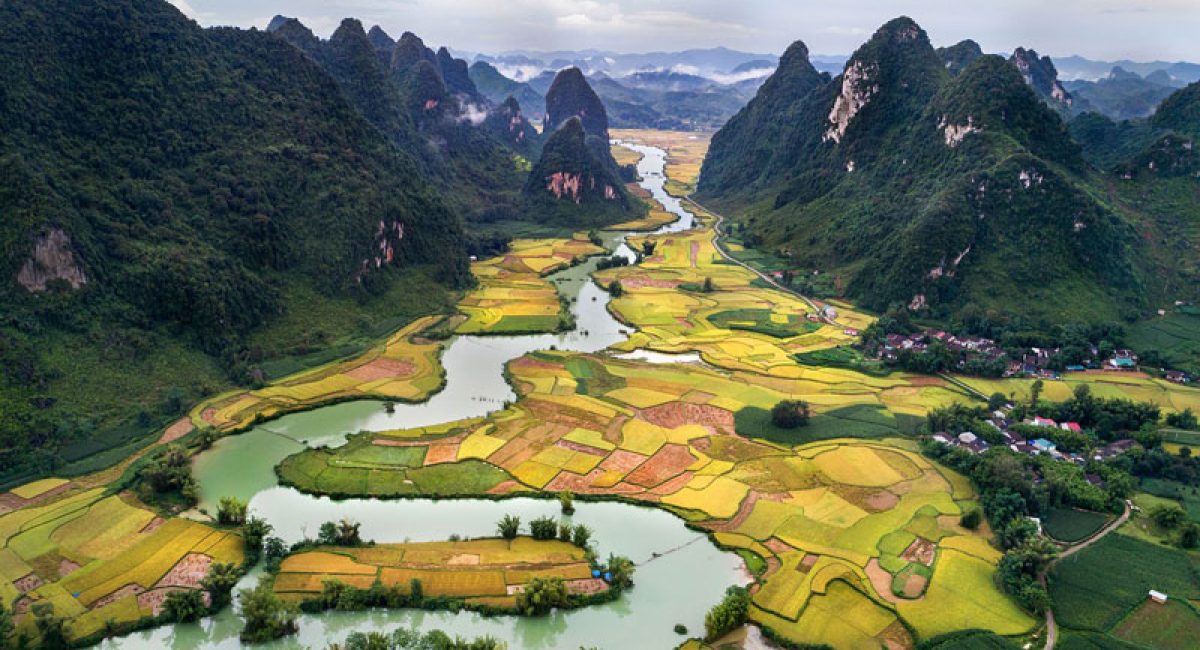Five things you should know before visiting Vietnam
From How To Communicate Better To Food Recommendations, these easy tips will help our Globe Aware volunteers travel like a pro!
Five things you should know before visiting Vietnam
From how to communicate better to food recommendations — these easy tips will help you prepare for your trip like a pro
AATREYEE MOHANTA
April 8, 2023
MY KOLKATA
One of the most attractive holiday destinations in Southeast Asia, travelling to Vietnam can be fun if you know what you’re getting yourself into beforehand. Learning all about the local customs, culture and transportation in advance will not only help avoid problems during your trip, but also make it a memorable one.
1. When to visit
Being a Southeast Asian country, the first thing about Vietnam you should take into consideration are its seasons. It has a tropical monsoon climate. The weather is hot, humid and sultry with an adequate dose of Vitamin D during the day with an average temperature of 26-28°C. However, during winters, Vietnam gets quite chilly with a strong breeze and the temperature ranging between 18°C and 23°C. The best time to visit the country is between November and April, ensuring you soak in the warmth of the sun while also enjoying the cool weather.
2. Local Transport
Book your flights in advance to save a few bucks on the flight fares. While most metro cities in India have flights to Hanoi and Ho Chi Minh City, try to get a direct flight to avoid long flying times. Make sure you have a car to pick you up at the airport because many flights out of Kolkata can reach the cities late at night when transportation could be a challenge.
Remember, it is best to rent a car via your travel agent or hotel along with a guide because taxis can be very expensive for short rides. Though it’s legal for foreigners to hire motorbikes that are 50cc or less, it is best to avoid that because of the lack of familiarity with Vietnam’s road rules. You can also walk around the streets to experience the local culture.
3. Communicate better with a translation app
While Vietnam is ready for all the tourism it is getting, language can be quite a barrier. You may come across local people who could speak phrases of English, but it is better not to count on it. Most of the locals depend on Google Translate to communicate with foreigners in English. The best thing to do would be to buy a local sim card at the airport — the service providers have many data plans for you to choose from and are quite pocket friendly (Rs 2,000-4,000) depending on the kind of plan you opt for. The best part? Accessibility to the internet when you’re out exploring via Google Maps. It will make for a much more pleasant experience than getting lost in a city that does not speak your language.
4. Food restrictions
If you’re a vegetarian, Vietnam is probably not a country where you can binge to your heart’s content. The food culture here is heavy on seafood and meat. They only seem to consume vegetables as an accessory to their mains — afterall, this country does put eggs in their coffee too! However, the country has convenience stores at every corner. Much like Thailand’s 7-Eleven, Vietnam has Circle K stores. The convenience stores have a lot of snacks like chips, ready-to-eat sausages, fresh bakery breads, a wide variety of instant ramens and dairy products like flavoured milks and yoghurts for you to feast on. You could also visit European-style restaurants and cafes for vegetarian meals and snacks like crepes. Try a variety of tofu stir-fried dishes along with salads to get a taste of the local cuisine.
5. How much to tip
Like in every other tourist destination, tipping is always appreciated in a developing country like Vietnam. Though it is not mandatory, your local tour guide, driver and hotel staff may sometimes try to coerce you into paying tips. However, we recommend you hold your ground and tip only if you want to. Also, the amount should be entirely a personal preference.


Comments